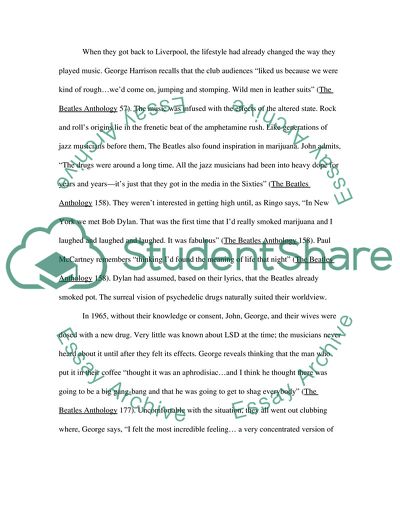Cite this document
(“Influence of drugs on the musical output of a Beatles Essay”, n.d.)
Influence of drugs on the musical output of a Beatles Essay. Retrieved from https://studentshare.org/culture/1537149-influence-of-drugs-on-the-musical-output-of-a-beatles
Influence of drugs on the musical output of a Beatles Essay. Retrieved from https://studentshare.org/culture/1537149-influence-of-drugs-on-the-musical-output-of-a-beatles
(Influence of Drugs on the Musical Output of a Beatles Essay)
Influence of Drugs on the Musical Output of a Beatles Essay. https://studentshare.org/culture/1537149-influence-of-drugs-on-the-musical-output-of-a-beatles.
Influence of Drugs on the Musical Output of a Beatles Essay. https://studentshare.org/culture/1537149-influence-of-drugs-on-the-musical-output-of-a-beatles.
“Influence of Drugs on the Musical Output of a Beatles Essay”, n.d. https://studentshare.org/culture/1537149-influence-of-drugs-on-the-musical-output-of-a-beatles.


